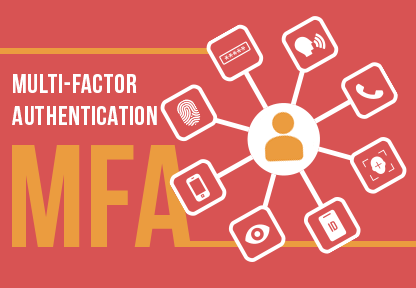In the digital age, online banking has become a staple of modern financial services, offering unprecedented convenience for users worldwide. However, this convenience comes with its own set of challenges, particularly regarding security. The increase in cyber threats has made it imperative for banks to ensure robust security measures that protect both the institution and its customers. Avatier’s Adaptive Multi-Factor Authentication (MFA) is addressing this challenge head-on, providing a solution that not only enhances security but does so in a way that minimizes user disruption.
Understanding Adaptive MFA
Adaptive Multi-Factor Authentication is a sophisticated security measure that dynamically adjusts the authentication process based on real-time risk analysis. Unlike traditional MFA, which requires users to go through multiple steps every time they log in, adaptive MFA considers factors such as the user’s behavior, location, and the device used to decide the level of authentication required. This not only reduces friction for the user but also enhances security by making it difficult for hackers to succeed in fraudulent activities.
The Security Challenge in Online Banking
Online banking systems are increasingly targeted by cybercriminals. Phishing scams, credential stuffing, and other forms of attacks have made customer accounts vulnerable. These threats have serious financial implications and can severely damage a bank’s reputation if not addressed adequately. Traditional authentication methods, such as passwords and even basic two-factor authentication, are proving insufficient against the sophisticated techniques employed by cybercriminals today.
How Avatier’s Adaptive MFA Reduces Fraud
Avatier’s solution leverages advanced machine learning and AI-driven analytics to continuously assess risk factors associated with each login attempt. By analyzing patterns and detecting anomalies, such as an unusual location or a new device attempting access, the system can reduce the risk of fraudulent access by demanding additional authentication steps only when necessary.
Moreover, Avatier’s solution integrates zero-trust principles, ensuring that no user is implicitly trusted and all access requests are heavily scrutinized. This approach significantly reduces the avenues available to malicious parties attempting unauthorized access to sensitive banking data.
Enhancing User Experience
One of the main concerns with implementing stricter security measures is the potential disruption to legitimate users, which can lead to frustration and a loss of trust in the service. Avatier’s Adaptive MFA offers a solution to this problem by ensuring that only users deemed to be a risk are prompted for additional authentication, thereby reducing unnecessary steps for safe users.
This approach aligns with Avatier’s philosophy of providing smarter identity management solutions that are flexible, unified, and secure while maintaining seamless user experiences. By minimizing friction during the authentication process, banks can maintain high levels of user satisfaction, ensuring that the security measures do not become a deterrent to the usage of their services.
Integration with Existing Systems
Implementing Avatier’s Adaptive MFA is seamless thanks to its containerized identity framework. This flexibility ensures that the solution can be integrated into existing banking systems without significant overhauls or disruptions. The platform’s ability to deploy securely across any environment—cloud or on-premise—ensures that banks can maintain consistency in their security measures without being tied to specific architectures.
Compliance and Regulatory Benefits
Banks operate in a highly regulated environment where compliance with data protection and privacy regulations is paramount. Avatier’s Adaptive MFA aids in achieving compliance by providing audit trails and detailed logging of authentication events. This ensures that banks can easily demonstrate adherence to regulatory requirements while benefiting from enhanced security protocols.
Real-World Application and Customer Success
Financial services around the world are already reaping the benefits of Adaptive MFA. By implementing Avatier’s solution, banks have seen a significant reduction in fraud-related incidents and enhanced user satisfaction due to less intrusive security measures. Customer success stories highlight not only the mitigation of risks but also an improvement in the overall digital experience for customers.
Future Prospects and Conclusion
The future of online banking security lies in adaptive solutions that can intelligently adjust to the evolving threat landscape. Avatier’s Adaptive MFA represents a forward-thinking approach to this challenge, embodying its commitment to innovation in identity management. As cyber threats continue to evolve, so too must the measures to counteract them.
Avatier’s Adaptive MFA provides an invaluable tool for online banking, ensuring security without sacrificing user convenience. By integrating intelligence, adaptability, and seamless user experiences, Avatier offers banks a robust path forward in protecting their digital ecosystems while fostering customer trust and engagement.
For more information on how Avatier can transform your banking security strategy with Adaptive MFA. Engage with a solution that aligns with modern security challenges while enhancing customer satisfaction and loyalty.




